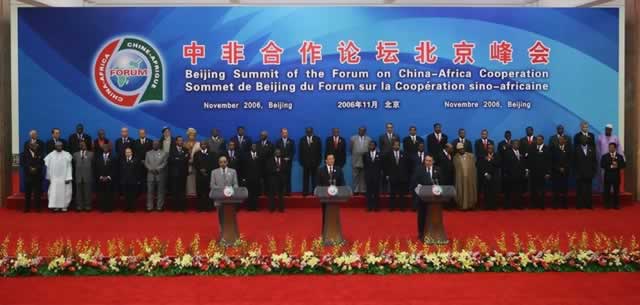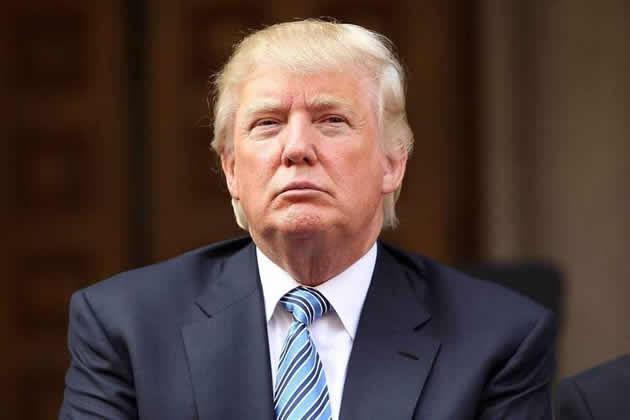The solidity of China-Africa relations

Lovemore Ranga Mataire Senior Reporter
In analysing the political-economic relations between the United States and Africa, Stephen D. Krasner in “International Politics: Enduring Concepts and Contemporary Issues”, argues that Third World states want both wealth and power and seek to use international fora and organisations to advance their interests in ways that are viewed as antagonistic by most industrialised nations.
Krasner puts in perspective the inherent conflictual nature of relations between the United States and Africa, with the former perpetually seeking to entrench its hegemonic influence while the latter is highly suspicious of Washington’s “philanthropic” overtures, which are usually coated with myriad conditionalities.
There is clear difference in value systems borne out of markedly varying historical perspectives and how the two sides situate themselves in the global arena.
Common sense entails that in the post-colonial, post-Cold War and post-communist containment period, relations between Africa and the United States must surely be informed by the need to establish a New International Economic Order based on mutual respect and the sanctity of sovereignty.
Sadly, US foreign policy towards Africa has not evolved from being omniscient to humanistic – moving away from its obsession with blackmailing and blacklisting any “deviant” state through imposition of sanctions and waging of wars.
The mere fact that the US-Africa Summit is a direct response to the Sino-Africa Summit reminds observers of the Cold War era when America competed with the then USSR in everything.
Yet, even with the full knowledge of its lopsided foreign policy, especially when juxtaposed with China’s multi-polarity and non-interventionist approach, the US has continued with its headstrong intrusive and fatally destabilising attitude.
A critical evaluation of the historical background that gave rise to China’s re-engagement with Africa and the US’ kneejerk response will reveal how Beijing has succeeded in creating a mutually beneficial economic platform far removed from America’s conditional aid.
The evaluation will also reveal why the US-Africa Summit has largely been symbolical without any tangible results.
First, before the emergence of China as a serious global power, the period succeeding the Cold War was characterised by Britain, France and United States as the major powers with significant interest and influence in Africa south of the Sahara.
The adoption of liberal economic policies in China invariably led to its renewed vigour in cementing economic ties with Africa. China focused on debt cancellation and offered aid without political conditions and consequently gained valuable diplomatic support to defend its international interests.
Over time, China has emerged as an influential player on the African continent.
By and large, China’s foreign policy can be considered dynamic, constructive and flexible; especially as it seeks to intensify its bilateral relations throughout the world in being a member of regional bodies dealing with security and economic issues and extend its involvement in multilateral organisations.
As remarked by Zbigniew Brzezinski, the Polish-American political scientist who served as the US national security advisor to president Jimmy Carter from 1977 to 1981: “China is clearly assimilating into the international system.”
The second reason that prompted China to seek closer ties with Africa emanates from the persistent barrage from the West following the Tiananmen Square incident, including an arms embargo imposed by the US and European Union.
Developing countries, thus, became the cornerstone of Chinese foreign policy in building coalitions so as to shield Beijing from Western antagonism.
Most African nations have readily welcomed China because its presence represents a mix of political and economic incentives, which creates a win-win situation for both sides.
China, thus, is an appealing partner and a better choice for Africa than the West.
Another important factor that makes China a more appealing partner is its belief in the sanctity of national sovereignty.
China repudiates the legitimacy of outside interference in the domestic political affairs of individual states and no political connotations are attached to its development assistance.
In summary, the massive Chinese investments in Africa since 1989 underline its acceptance as an equal partner in development even though it is apparent that its investments are mainly motivated by its ballooning industrial growth appetite for resources that are abundant in Africa.
Between 1989 and 1997, the bilateral trade volume grew by 430 percent and since then has more than quintupled, reaching US$24 billion in 2004.
As a result, China has overtaken the United Kingdom, France and the United States as a trading partner of choice.
US annual trade with Africa stands at US$85 billion compared to China’s US$200 billion.
On the other hand, the US seems to have not moved from immortalising its elongated self-importance in world affairs. As early as 1782, writers and poets have waxed lyrical about the US being the ‘‘first nation”.
Ralph Waldo Emerson viewed the formation of the United States as a “last effort of the Divine Providence on behalf of the human race”, and Herman Melville considered his countrymen a “peculiar, chosen people, the Israel of our times; we bear the ark of liberties of the world”.
Nothing seems to have changed since then.
President Obama set the tone during the last US-Africa Summit by saying African presidents should not come with begging bowls to the summit. The summit broke with tradition in a number of areas that all point to the omniscient attitude of the host.
While the sheer number of the Heads of State invited can be cited as a mild diversion from the administration’s strategy of working with “like-minded” nations, the fact that there was no one-on-one meetings with Obama made a mockery of the whole essence of this meeting.
In contrast, similar meetings that have taken place in China, Japan, India and Europe have seen some Heads of State having one–on-ones with the host president.
Every African leader is always invited to the Sino-Africa Summit with a US$20 billion commitment of aid to Africa, which has since been supplemented by another US$10 billion.
The US-Africa Summit meeting took the form of “an interactive dialogue” with Obama on August 6, whatever that means. The meeting concluded soon after the so-called “interactive dialogue” with no final document – another break with protocol, but, no doubt, Obama will shake hands with each of the African leaders.
The insult does not end there.
Various cabinet secretaries were asked to host African leaders at private dinners even though they rank below Heads of State.
The fact that the summit was held on Obama’s birthday led many critics to dismiss it as more of a legacy programme than a working meeting with real results.
Africa is keen to engage economically with the US, but its leaders are not stupid. America’s obduracy is there for everyone to see.
Until it modifies its foreign policy towards Africa, China will continue making inroads in its engagement with Africa.










Comments